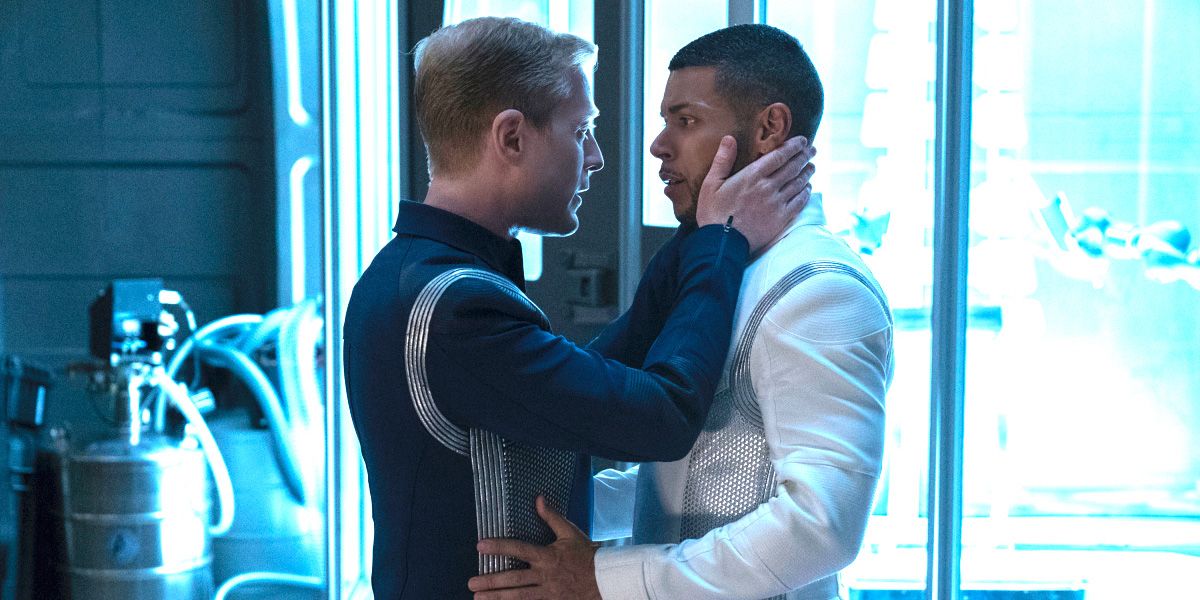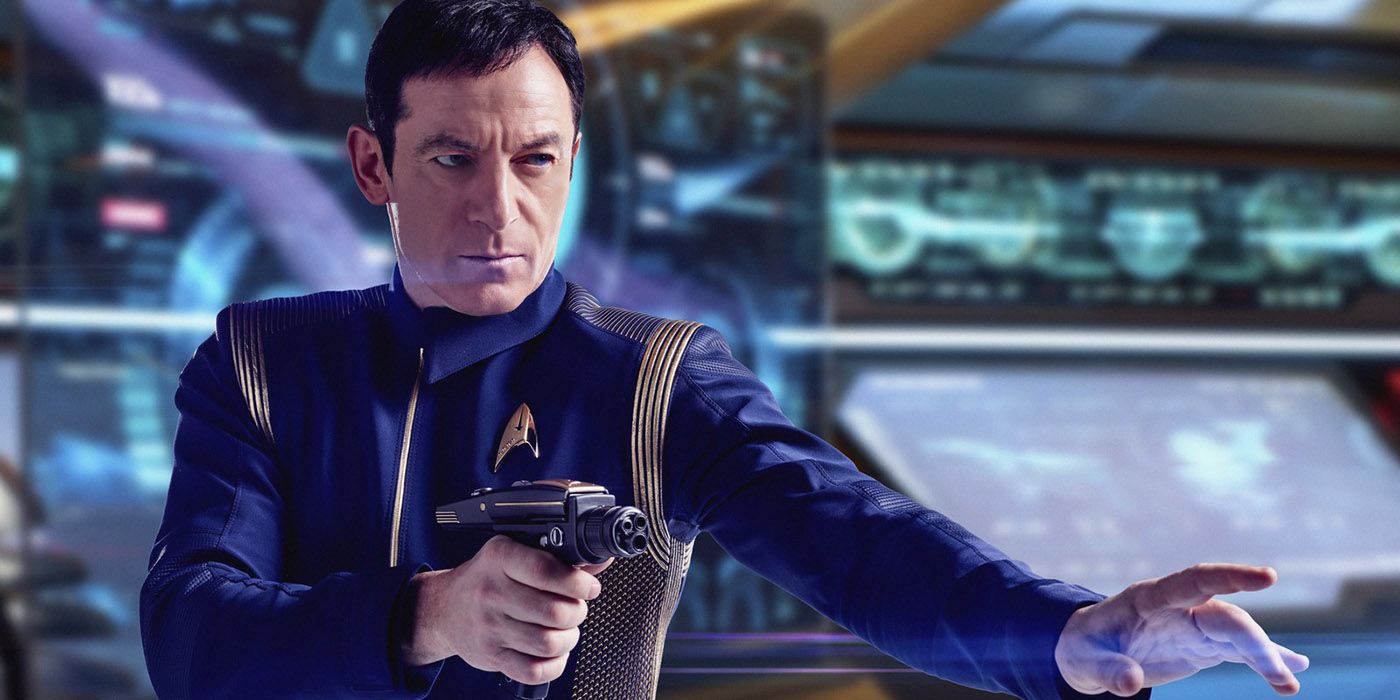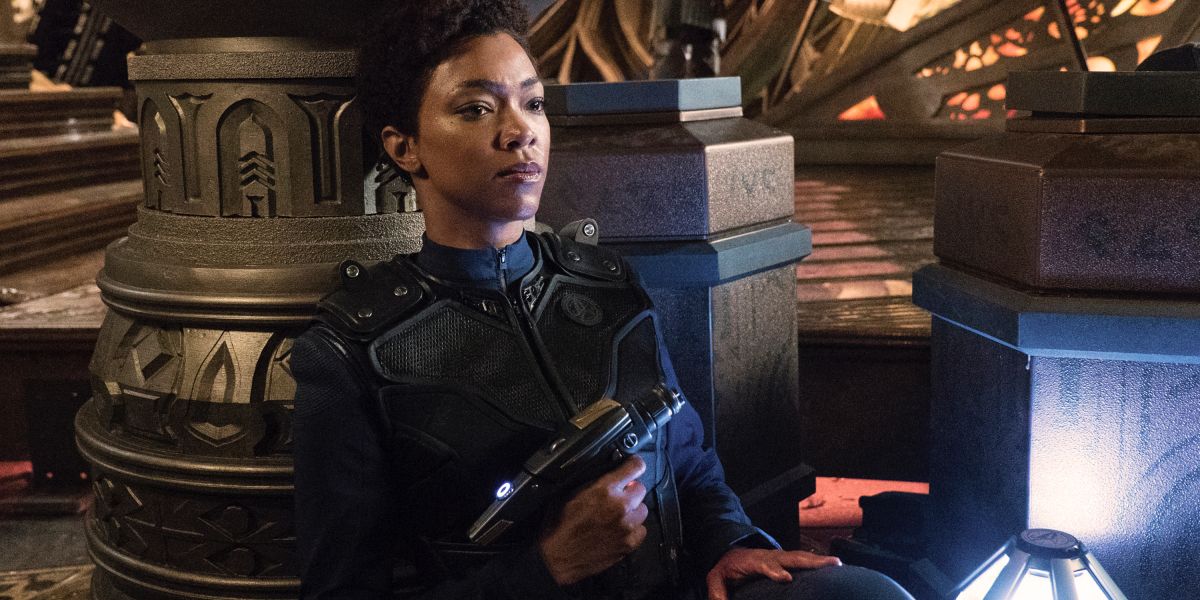The showrunners of Star Trek: Discovery raised some eyebrows when, before the show premiered, they spoke about how modern, prestige shows like Game of Thrones were a major influence on their approach to the venerable science fiction franchise. Some of those influences were givens, and more a product of the fact Star Trek had been absent from television for over a decade and would have to modernize a bit. That meant higher production values, a more modern sense of humor, and highly serialized storytelling, which have all worked to varying degrees.
The problems have arisen from what showrunners Gretchen J. Berg and Aaron Harberts specifically cited as Game of Thrones' direct influence - the uneasy feeling that no character is safe, and that anyone could die at any moment. Star Trek has never shied away from death; "red shirt" has become cultural shorthand for background characters perishing due to the preponderance of fresh-faced ensigns who met their end standing behind Captain Kirk and Spock on away missions in the original series. Star Trek: The Next Generation stunningly killed off Lieutenant Tasha Yar (Denise Crosby) near the end of its first season. Crosby was unhappy with the direction of her character and wished to depart, so Yar's abrupt, never foreshadowed death was mostly a way for the series to get rid of a disgruntled actor. The third season episode "Yesterday's Enterprise" would lean into the meaninglessness of her demise, mining an instance of behind the scenes drama for one of the best hours in all of Star Trek history.
Related: How Game of Thrones Impacted Star Trek: Discovery
Longtime fans likely breathed a sigh of relief when Discovery premiered, and it became clear that Captain Georgiou's death, while tragic, was a necessary moment for Michael Burnham's character development and the show's overall aim of telling a slightly unconventional Star Trek story. But as the series continued, an alarming pattern emerged. Commander Ellen Landry (played by Battlestar Galactica veteran Rekha Sharma), Discovery's security chief, was introduced as a no-nonsense officer who was Captain Lorca's most trusted ally, and seemed to be set up as a major player in Lorca's decidedly unconventional methods. But Landry died, violently and pointlessly, in the series' fourth episode,"The Butcher's Knife Cares Not for the Lamb's Cry," when she tried to kill the massive tardigrade that would soon be piloting the ship's experimental spore drive. Lorca barely acknowledges her death in the aftermath, and the character has yet to garner another mention.
In an even more provocative move, the midseason premiere "Despite Yourself" saw the death of Dr. Culber (Wilson Cruz) at the hands of Lieutenant Tyler (Shazad Latif), the latter lashing out violently at the growing realization that he's a Klingon sleeper agent. Culber is one half of Star Trek's first televised gay couple, along with Lieutenant Stamets (Anthony Rapp) - a fact the series' producers proudly broadcasted during the lead up to the premiere. Sensing an upcoming backlash, the showrunners and Cruz conducted post-episode interviews where they promised this was not a "bury your gays" situation and that Culber would still factor into the show's future somehow. Even if that's true, there's no erasing the viscerally unpleasant moment of watching Tyler snap Culber's neck for no immediately apparent reason than to make it clear how unhinged Tyler is becoming. If Culber stays dead, it's an alarming disposal of not only Star Trek's first gay person of color, but also one of the show's most morally pure characters; if he somehow comes back to life, this will almost certainly feel like mean spirited trolling in retrospect.
Apart from the shock deaths, Discovery has also borrowed Game of Thrones' amoral worldview. Lorca is one of the series' best characters, but he's also the most damaged, unstable Starfleet captain we've seen up close in the franchise's run. That owes something to the fact that this is the first Star Trek series where the captain isn't the focus, but Michael Burnham is, in some ways, just as messed up as Lorca. Her hubris got her captain killed and escalated the war with the Klingons, and she carries that guilt like a Borg cube hanging around her neck.
There's nothing wrong with featuring characters who are less than perfect in a Star Trek series. Star Trek: The Next Generation made great use of Ensign Ro, a young officer with deep scars from her upbringing during the occupation of her home world, Bajor, by the fascistic Cardassians. Star Trek: Deep Space Nine was routinely credited as the darkest, most morally complex series in the franchise before Discovery, which leaned into themes of racism and distrust of power in much more pointed ways than Star Trek had before.
But there's a pronounced difference with Discovery. There's the inescapable feeling that the show views people who are unwilling to break the rules in the face of mortal peril as stupid, that for the utopian Federation to survive, they have to let people like Lorca get their hands dirty on their behalf. Cautious pacifists like Saru are seen as naive, and Stamets - the sort of super science nerd that is a hallmark of virtually every Star Trek series - is often portrayed as shortsighted and not invested enough in the war effort.
This gets into another problem with the series. The showrunners have said that the next season will touch on new themes, but that it will still fundamentally be a show about war. Star Trek, quite simply, is not about war. There's a pretty popular franchise that deals with star wars already. Even in series like Deep Space Nine, where war was a part of the narrative, Star Trek has always been about both literal and figurative exploration, and humanity's mission to find hope, wisdom, and friendship in even the darkest corners of the universe.
Related: Star Trek Discovery is Bad at Surprises, and That's OK
Those aspects just aren't an important part of Discovery yet, and it's easy to see how the influence of darker prestige shows like Game of Thrones would lead to the curtailing of such inherently optimistic themes. And it's important to note the "yet" here; with the exception of the original series, there has never been a Star Trek series that achieved a perfect liftoff in its debut season. The Next Generation had a notoriously chaotic production process for its first two seasons, only finding its voice and becoming a classic in its third year, when new showrunner Michael Piller overhauled the series' writing staff. Piller would go on to create Deep Space Nine, but ironically, that show wouldn't fully figure itself out until Piller stepped aside well into the series' run and showrunner Ira Steven Behr and writer Ronald D. Moore took charge.
There's still plenty of time for Discovery to find its voice, beyond the more obvious square influences it's trying to shove into a round hole. The fact that it's essentially the only thing currently keeping CBS All Access afloat would suggest the show will likely be allowed to run as long as CBS is interested in competing in the subscription streaming market, so a creative course correction should really not be a cause for concern. There's an open question as to whether or not Berg and Harberts are the people to oversee such a realignment; recent interviews have suggested they don't see a problem with the show's direction or tone. Berg and Harberts are not Star Trek fans, and were installed as showrunners after CBS parted ways with initial show creator Bryan Fuller, a lifelong Star Trek obsessive who got his professional start working on Deep Space Nine. There is absolutely nothing that says a Star Trek showrunner needs to be a fan of the franchise coming in; Nicholas Meyer - the director of arguably the two best Trek films, The Wrath of Khan and The Undiscovered Country - had only a passing knowledge of the series when he boarded the Enterprise. And yet Meyer understood what currently seems to escape Berg and Harberts: Star Trek is intrinsically a rejection of humanity's shortcomings. Intellect, empathy, and hope trump fear, mistrust, and paranoia.
There's a theory about pop culture that suggests it reflects the real world era in which it's made, and sometimes even presages it. Shows like Game of Thrones, The Walking Dead, and The Handmaid's Tale all exist in dystopias, and feature flawed protagonists doing their best to overcome monumental odds in worlds designed to crush them. That's a perfectly valid way to make television in 2018. But Star Trek should be the antidote to that brand of storytelling, a future where bad actors and potential despots are the minority, attempting to upend humanity's progress either figuratively or literally. The notion of a measured, empathetic character like Jean-Luc Picard gracing our televisions in the current societal climate is almost overwhelmingly appealing - something that the decidedly uneven Seth MacFarlane series The Orville understands better than Discovery, bizarrely.
Now more than ever, we need Star Trek to show us there is a better way, that we are capable of being so much more than we currently are. It is unquestionably easier and trendier to tell stories about broken, compromised people grappling with the darkness within and without. But we have more than enough of that both on television and in the real world right now. This is the exact wrong time for Star Trek to emulate the likes of Game of Thrones. If Discovery wants to become not only a stronger series, but a culturally significant one, it should embrace the strengths of its predecessors and boldly go somewhere that's feeling very far away these days: a bright, hopeful future.




